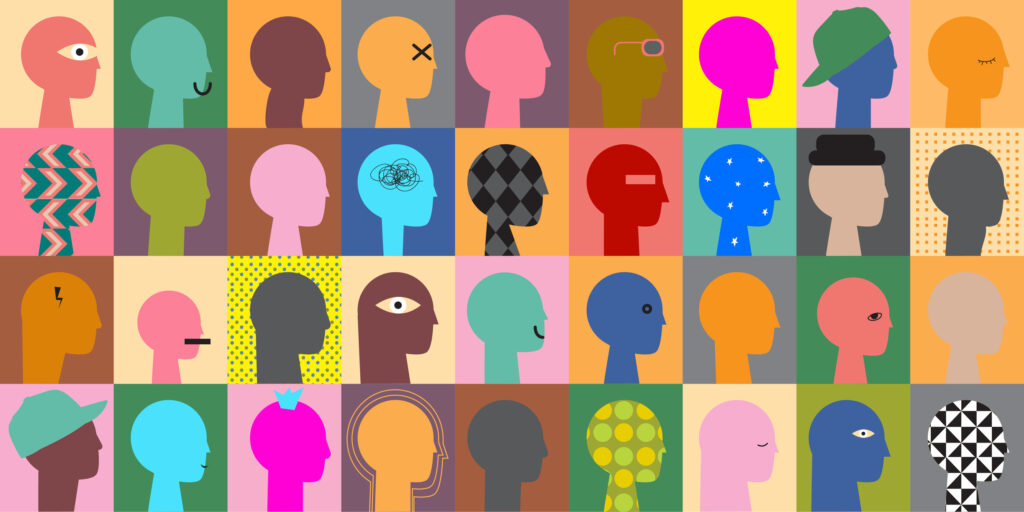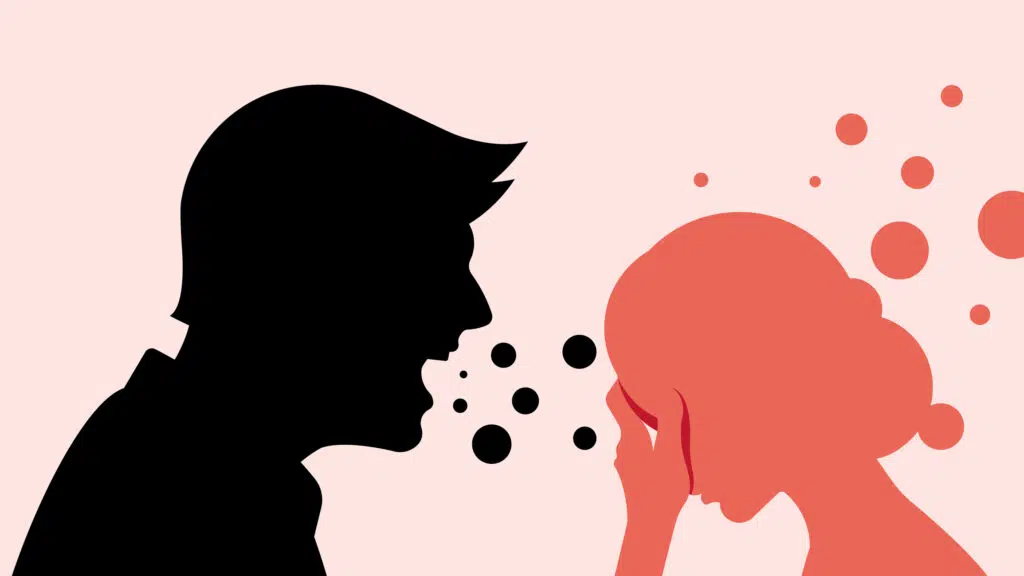The Benefits of Combining Psychiatry and Therapy for Mental Health

Sometimes treating mental health requires a multipronged approach. That means addressing different aspects of mental illness. In some cases, combining psychiatry and therapy provides a comprehensive treatment plan that offers the support needed to move forward. So, what are the benefits of combining medication and therapy? Let’s explain how medication and therapy can work together for mental health treatment and why your therapist and psychiatrist should talk.
What is the Difference Between Psychiatry and Therapy?
Understanding the differences between psychiatry and therapy is essential when discussing mental health. While there is some overlap in the professions, they are different. A therapist is a licensed counselor or psychologist who uses talk therapy to treat a range of mental health conditions. A psychiatrist is a medical doctor who can diagnose and prescribe medication.
There is a division between therapists, psychologists, and psychiatrists. It’s common for a mental health care provider to have a specialized niche, which leaves the patient going to two separate providers for care. Integrated practices that offer both psychiatry and therapy where health professionals talk and collaborate are far less common than you think. Too often, the patients end up being the liaison between providers despite already having enough to worry about.
Medication And Therapy: A Combined Approach To Mental Health Care
Combining therapies for mental health care using online therapy and medication addresses the physiological and psychological aspects of mental health disorders.
In some instances, medication can improve symptoms more quickly, which gives the individual an opportunity to work on understanding, learning, and coping through therapy. Therapy can help you to understand and address the underlying problems that contribute to the symptoms. Medication can help to reduce symptoms.
It’s important to know that when talking about medication for mental health treatment, it’s usually recommended at a time when a person is struggling to cope with normal daily challenges. Some mental health disorders completely wipe out your ability to cope with everyday life, and medication may be considered in those cases.
How Do Medication And Therapy Work Together?
For some individuals, a combination of medication and therapy may provide a better result. By reducing the symptoms of depression and anxiety, a therapist can teach you skills that allow you to cope with your daily life and start moving toward feeling better. Combined treatment using medication and therapy may be recommended for mental health conditions such as:
- Anxiety
- Depression
- OCD
So, how do antidepressants work with counseling?
One analysis with 11,910 participants found that combined treatment of psychotherapy and antidepressants was superior overall for both moderate and severe depression. The National Institute for Health and Care Research states that the routine use of antidepressants is not recommended for mild-to-moderate depression. However, antidepressant drugs combined with therapy is reserved for those with severe depression.
Unfortunately, depression is a common mental health disorder, with estimates that 5% of the global population suffers from depression. That’s about 280 million people. It’s easy to think about the treatment of depression as medication or therapy, but there’s a reason that both should be considered. If an individual with depression benefits from antidepressants, then it can reduce some of the barriers that could stop progress in talk therapy. For example, that individual may be more open and less on edge to let someone in. If antidepressants improve depression symptoms, it can give you a chance to be able to work with your therapist to move forward. Of course, circumstances can differ, so it’s important to create a treatment plan based entirely on the individual and their situation.
In general, psychiatry is not the first stop when it comes to mental health treatment. Medication tends to be prescribed when a person is struggling. For instance, if anxiety is utterly debilitating that an individual can’t sleep, leave the house, go to work, or do even the simplest things, then a combination of psychotherapy and medication for anxiety could be recommended. With milder anxiety, you would normally speak to a psychologist first. Treatment for anxiety could include cognitive behavioral therapy (CBT), mindfulness, exercise, and other lifestyle adjustments.
Benefits of Combining Medication and Therapy for Mental Health Treatment
In an ideal world, your psychiatrist and therapist have a collaborative relationship where they talk and closely coordinate to provide a treatment plan to a patient. The reality is that many patients end up going to separate practices, but there are several benefits of combining medication and therapy from one provider.
- High Standard Of Care
Imagine an individual with severe depression getting a prescription from a psychiatrist for antidepressants. At the same time, they are speaking with a therapist regularly. The psychiatrist can read the therapist’s assessments and check in on how the patient is doing. From this, they might make some adjustments to dosages. The patient doesn’t have to repeat painful information to their therapist or psychiatrist; both parties know what’s happening. The ability to have continuity of care creates a high standard of care for patients.
- Increase Learning and Understanding
The learning and understanding that comes with therapy are crucial in mental health care. Talking therapies allow someone to feel more open and talk about something they didn’t know about. Therapy can help you get to know yourself and develop coping skills.
- Collaborative Approach
A collaborative approach taps into the expertise of both a psychiatrist and therapist, which can be invaluable. With mutual trust and respect, psychiatry and therapy can work to recognize the specialist skills they both bring to the patient. Unfortunately, in many cases, therapists and psychiatrists from different providers don’t tend to take the time to interact regularly. By using therapy and psychiatric services from one provider, a collaborative approach to treatment becomes the norm.
- Up-To-Date Recommendations
If, for any reason, a patient on medication wasn’t coping well or there was a change in a previous therapy session, your psychiatrist would have the most up-to-date information on you. This applies to both parties. There’s no delay in relaying information, meaning the recommendations you get are entirely up-to-date. Whether it’s lifestyle adjustments, an increase in therapy sessions, or dosage changes, your psychiatrist and therapist are always aware of the most up-to-date recommendations.
Therapy And Psychiatry At Thriving Center Of Psychology
Sometimes mental health treatment requires an integrative approach where you look at different aspects of your health. Your treatment plan should be personalized to your unique condition, whether it includes long-term talking therapy, medication management, or a combination of the two.
If you’re struggling to cope with anxiety, depression, or mental health in general, we can match you with the right mental health professional. Thriving Center of Psychology provides both therapy and psychiatry for patients in New York and California. If you’re considering therapy and psychiatry, contact the team to book an appointment at a time that suits you. Getting the right course of treatment is essential for supporting your physical and mental health. Whether you need to see a therapist, psychiatrist, or both, we can help.

Understanding Impostor Syndrome: Breaking Free from Self-Doubt
Imposter syndrome can make you feel like a fraud with no confidence in your abilities. You’re not alone; so many people feel like this. The good news is that you can break free from imposter syndrome and overcome self-doubt; here’s how.

Supporting a Loved One with Mental Illness: Practical Tips and Resources
There isn’t one perfect way to support a loved one with mental illness. How you care for someone will depend on you and the person you support. Mental illness can affect all aspects of a person, from mood to behavior. It can come as a shock when a loved one is diagnosed with a mental illness.

Is My Relationship One-Sided?
Do you feel like you’re doing all the work in a relationship? When a relationship is one-sided, it can create stress and conflict. If one partner invests more energy and effort to make the relationship work, it creates an imbalanced dynamic that can be draining in the long haul.

How To Recover From Burnout?
Manageable and short-term stress can increase alertness and give you the focus to hit a tight deadline. But left unchecked, chronic stress can result in burnout, leading to complete physical, mental, and emotional exhaustion.
